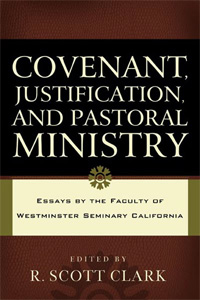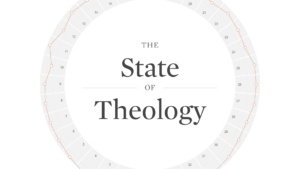Organized Chronologically Updated 2016 Henry, Carl F. H. The Uneasy Conscience of Modern Fundamentalism. Grand Rapids: Eerdmans, 1947. Packer, J. I. Fundamentalism and The Word of God. Grand Rapids: Eerdmans, 1958. Nash, Ronald H. The New Evangelicalism. Grand Rapids: Zondervan, 1963. Van Til, Cornelius. Karl Barth . . . Continue reading →
evangelicalism
Why Did Arminianism “Win”?
Sometime back Howard wrote to ask, “How and when did Arminianism become the predominate view?” That’s a good question. First, we should distinguish between Jacob Arminius (James Hermanzoon) and the Arminians (or the Remonstrants). Relative to the conclusions Arminian/Remonstrant theology later reached, Arminius . . . Continue reading →
Heidelcast 67: Recovering Mother Kirk
Before there was Recovering the Reformed Confession, there was Recovering Mother Kirk a seminal book for all Reformed confessionalists who are looking for a way between revivalism and fundamentalism or between QIRC and QIRE. Darryl Hart published Recovering Mother Kirk just over . . . Continue reading →
Yes There Is A Reformed Doctrine Of Justification
Recently I responded to John Armstrong’s post on the TIME magazine new Calvinist discussion. In his reply, John makes this startling claim: There is no monolithic Reformed voice on justification (especially re: imputation) and I would be very happy if we allowed a . . . Continue reading →
The Next Big Church Thing
One of the hottest restaurants in my hometown of Chicago is Next. Chef Grant Achatz’s first restaurant, Alinea, has three Michelin stars and is regarded as one of the best restaurants in the world. Achatz wanted his second restaurant, Next, to be . . . Continue reading →
The Strange Familiarity Of Socinianism
Each Fall I lead a course in which we read some great texts of Reformed orthodoxy and scholasticism. This week we turned our attention to John Owen’s response to Socinianism. We’re focusing our attention on chapter 7 of his response to the . . . Continue reading →
Why American Evangelicals Convert To And Imitate Rome
Some 57,400 American Protestants converted to Roman Catholicism between 1831 and 1860… Protestants reacted strongly to such Catholic proselytizing. They attributed the Catholics’ success in part to the cultural appeal of their imagery and art. Accordingly, Protestants began to make use themselves . . . Continue reading →
How Reformed Orthodoxy Was Lost
J. A. Turretin’s struggle against the Consensus, in which he achieved victory in 1705, was, therefore, part of an effort for an inclusive Protestant fellowship. He did not press the issues raised in earlier discussions—predestination, imputation of original sin, the presence of . . . Continue reading →
The Power And Influence Of The Evangelical Top Men
The economy of evangelical power is complicated but I want to highlight just two aspects today, aspects which have been critical in the recent discussion and which have a profound doctrinal significance. First, there is the fact that the same narrow gene . . . Continue reading →
A Friendly Reply To Derek Regarding Calvin, Luther, And The Falling Of The Church
You can catch up with the flow of the discussion via Derek Rishmawy’s interesting essay but the short story is that Carl Trueman published an essay at First Things properly cautioning American evangelicals about re-making Luther into their own image and challenging . . . Continue reading →
A Wonderful Illustration Of The Necessity Of An Objective Definition Of Reformed
Trevin Wax and David Fitch have been in a dialogue in which each of them has published a post expressing appreciation for the other’s tradition. Wax identifies as Reformed and Fitch as Anabaptist. The reader can draw his own conclusions as to . . . Continue reading →
1930 Or 2017?
The enemy is made the more dangerous because it is found within, rather than without, the Church. Definite opponents of the Christian religion could have been more easily met; but now as in ancient times Satan has preferred to labor for the . . . Continue reading →
What Passion City Gets Right And Wrong About The Sabbath
The last time we saw Atlanta Pastor Louie Giglio it was January 2013 and he was embroiled in controversy because he had been invited by President Obama to participate in his second inauguration. It had been discovered that Giglio held the biblical . . . Continue reading →
The Church That Prays Together, Stays Together
There are many centripetal forces that tear at the bonds that hold a congregation together, so it is useful to be aware of them. After all, we live in a remarkably busy world where quiet has almost disappeared entirely. We are connected . . . Continue reading →
Distinguishing Reformed From Evangelicalism: Realism
As evangelicals become dissatisfied with the emphasis on personalities, annoying trendiness, and the shallowness of Modern evangelical theology, piety, and practice they begin to look around for an alternative. One challenge they face right away is that, in many cases, their religious . . . Continue reading →
The Wall In The Middle Of The Book: Evangelicalism To Presbyterianism
New Resource Page: On Dispensationalism
Dispensationalism describes a way of reading the Bible and a system of theology the nearest roots of which are in the 19th century. There have been premillennial (traditionally known as “chiliastic) movements, including some Reformed theologians, since the early church but most . . . Continue reading →
An Appreciation Of J. I. Packer And A Dissent
On 17 July, 2020 J. I. Packer (b. 1926) went to be with our Lord. Like Carl Trueman I am thankful for Packer. As a young evangelical, Packer and John R. W. Stott saved me from the mindless evangelicalism toward which I . . . Continue reading →
The State Of Evangelical Theology 2020: The Crisis Deepens
For a few years now Ligonier, in conjunction with Lifeway, has been conducting surveys of Americans (and others) to track the state of American Christianity. They want to know, as they write, what “Americans believe about God, salvation, ethics, and the Bible.” . . . Continue reading →
Godfrey On The Lure Of Influence
Now I am not opposed to the idea of trying to be an influence. The Christian community should not isolate itself from discussion with anyone or from common action with non-Christians where the faith is not compromised. Christians should hope, pray, and . . . Continue reading →












